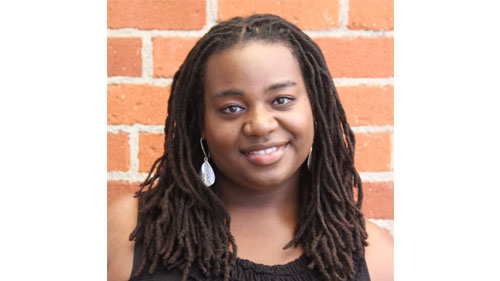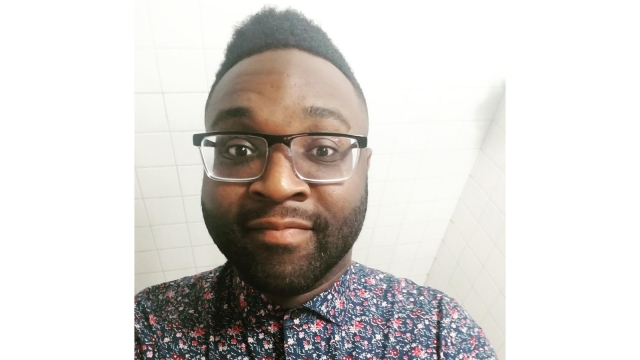Adoption is a Trans Issue

Post submitted by Nia Clark, HRC Foundation All Children – All Families Trainer
November is National Adoption Month, a time to raise awareness of the thousands of children and youth in the U.S. who are awaiting adoption every year.
For youth in foster care, being adopted into a loving and permanent family can be hard for many reasons. I entered foster care when I was 8-years-old. For years, the system failed to give me the supportive and affirming care I needed as an LGBTQ person.
When I was legally adopted at 16, I was just beginning to affirm myself as a young Black trans girl. However, I was forced to choose between my gender identity or having a permanent home and family. When I finally gathered the courage to tell my adoptive mother my truth, she terminated the adoption, just six months after my placement. I was forced back into foster care.
Rather than allowing these experiences to negatively impact my outlook on the future, I decided to use my personal narrative to change the system as a child welfare advocate, practitioner and trainer for HRC Foundation’s All Children – All Families project.

Adoption is a trans issue, a bi issue, a pan issue — an LGBTQ issue.
In my work as a trainer and educator, I help adoption and foster care professionals understand the issues faced by trans folks and the broader LGBTQ community and how being an LGBTQ-inclusive agency can affirm and sometimes save the lives of the youth they serve.
This National Adoption Month, it’s important to consider how LGBTQ people can make all the difference for these youth: as advocates, as prospective parents, as professionals and as a community that knows every child deserves a loving home.
HRC is making an impact by raising awareness of the discrimination and systemic obstacles LGBTQ youth as well as LGBTQ prospective parents face through educational resources and telling powerful stories, like those of Sam and Nakiya.
Every year more than 20,000 young people age out of foster care without being adopted.
Depending on the state in which they live, youth in the foster care system “age out” when they reach a certain age, or when they finish high school. When I aged out of the system at 22, I was homeless for more than three months. I had no safety net to fall back on and the foster care system didn’t equip me with the independent living skills I needed to survive. I had to learn how to do everything on my own. My story is far too common, and many of today’s youth face the same struggles I did.
Even as more and more stories of adoption or experiencing the foster care system come to light through shows like The Fosters or through people sharing their stories, overall awareness and understanding remains low. This month and every month, we must continue to raise awareness about foster care adoption among our friends, families and communities.
Join us to make a real difference by educating others.
Together, we can ensure that youth — especially those that are at the intersections of being Black and LGBTQ — are cared for and given the permanent families they deserve. That’s why HRC’s All Children – All Families project is so important to me. Change is made when we educate, empower and energize to help vulnerable communities. In honor of Trans Awareness Week and National Adoption Month, share this blog post and follow HRC on Facebook, Twitter and Instagram as they share these life-changing stories and resources.
If you’re interested in learning about the findings from HRC’s 2019 survey on LGBTQ adult experiences and perceptions of adoption.
The public opinion information in this post comes from the Dave Thomas Foundation for Adoptions 2017 US Adoption Attitudes Survey conducted by Harris Poll.
Learn more about the work of All Children – All Families to promote LGBTQ cultural competency in adoption and foster care at hrc.org/acaf. Want to stay up-to-date on All Children – All Families resources and activities? Subscribe to “Field Forward,” the program’s monthly e-newsletter at hrc.im/field-forward.#NationalAdoptionMonth
www.hrc.org/blog/adoption-is-a-trans-issue?utm_source=rss&utm_medium=rss-feed

